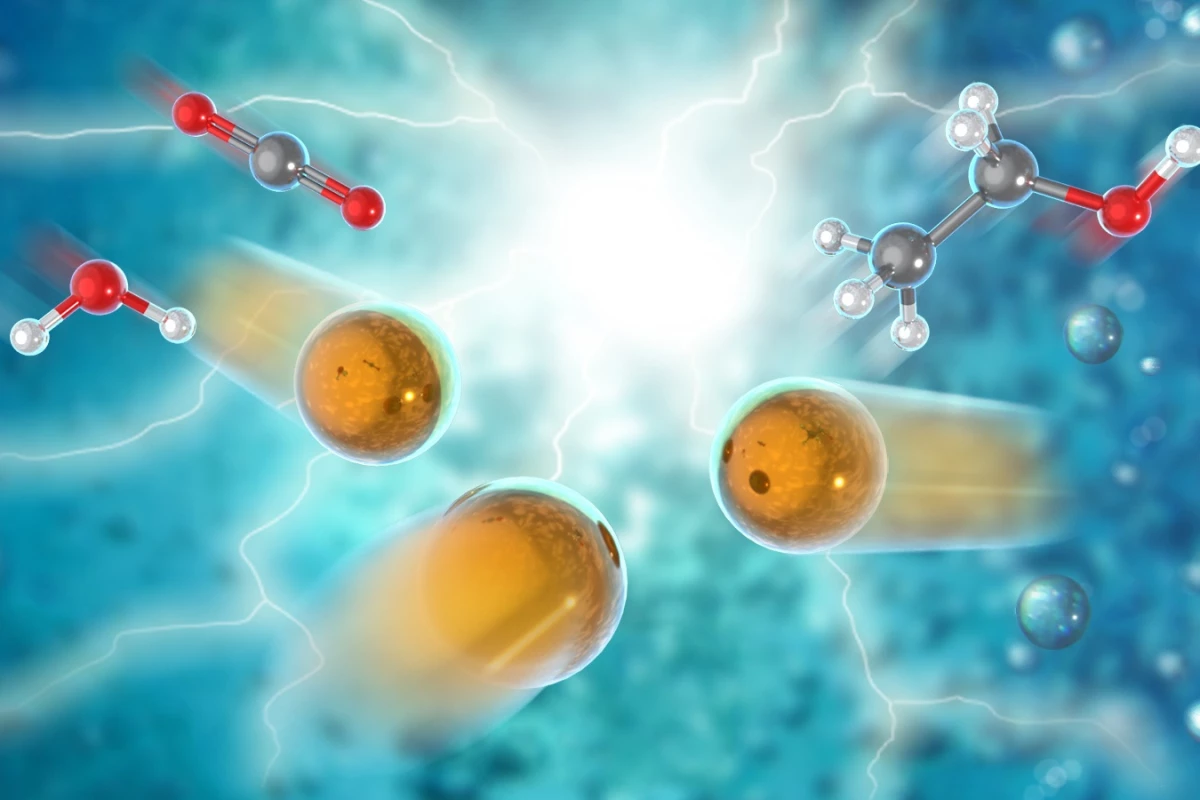Researchers at the US Dept of Energy's Argonne National Laboratory, working with Northern Illinois University, have discovered a new catalyst that can convert carbon dioxide and water into ethanol with "very high energy efficiency, high selectivity for the desired final product and low cost."
The catalyst is made of atomically dispersed copper on a carbon-powder support, and acts as an electrocatalyst, sitting in a low voltage electric field as water and carbon dioxide are passed over it. The reaction breaks down these molecules, then selectively rearranges them into ethanol with an electrocatalytic selectivity, or "Faradaic efficiency", higher than 90%. The team says this is "much higher than any other reported process."
Once the ethanol is created, it can be used as a fuel additive, or as an intermediate product in the chemical, pharmaceutical and cosmetics industries. Using it as a fuel would be an example of a "circular carbon economy," in which CO2 recaptured from the atmosphere is effectively put back in as it's burned.
If the process is powered by renewable energy, which the researchers say it can be due to its low-temperature, low-pressure operation and easy responsiveness to intermittent power, then great; all you're losing is fresh water, which is its own issue.
Realistically, you're still a lot better off running an EV than a car fueled with gasoline using this ethanol as an additive. While its Faradaic efficiency might be excellent, its overall electrical efficiency won't be; putting the same amount of energy into a battery will get more power to the wheels at the end of the day, because combustion engines are horribly inefficient in comparison to electric powertrains, and there will be additional significant power losses at this catalysis stage, as well as the industrial carbon capture and transport stages.
There's no way of telling at this stage what the costs might be, either. There are already a number of synthetic fuels using catalytically captured carbon dioxide; Carbon Engineering is one firm that pulls CO2 from the air to create a synthetic crude that can be refined into high-purity aviation fuel, for example.
Such synthetic fuels need to compete with regular fossil gasoline on price, so without knowing how the Argonne team's carbon-capture ethanol competes with bioethanol and other sources there, it's hard to place this on the spectrum between "neat result that won't see wide scale use" and "environmentally significant discovery."
The paper is published in Nature Energy.
Source: Argonne National Laboratory





